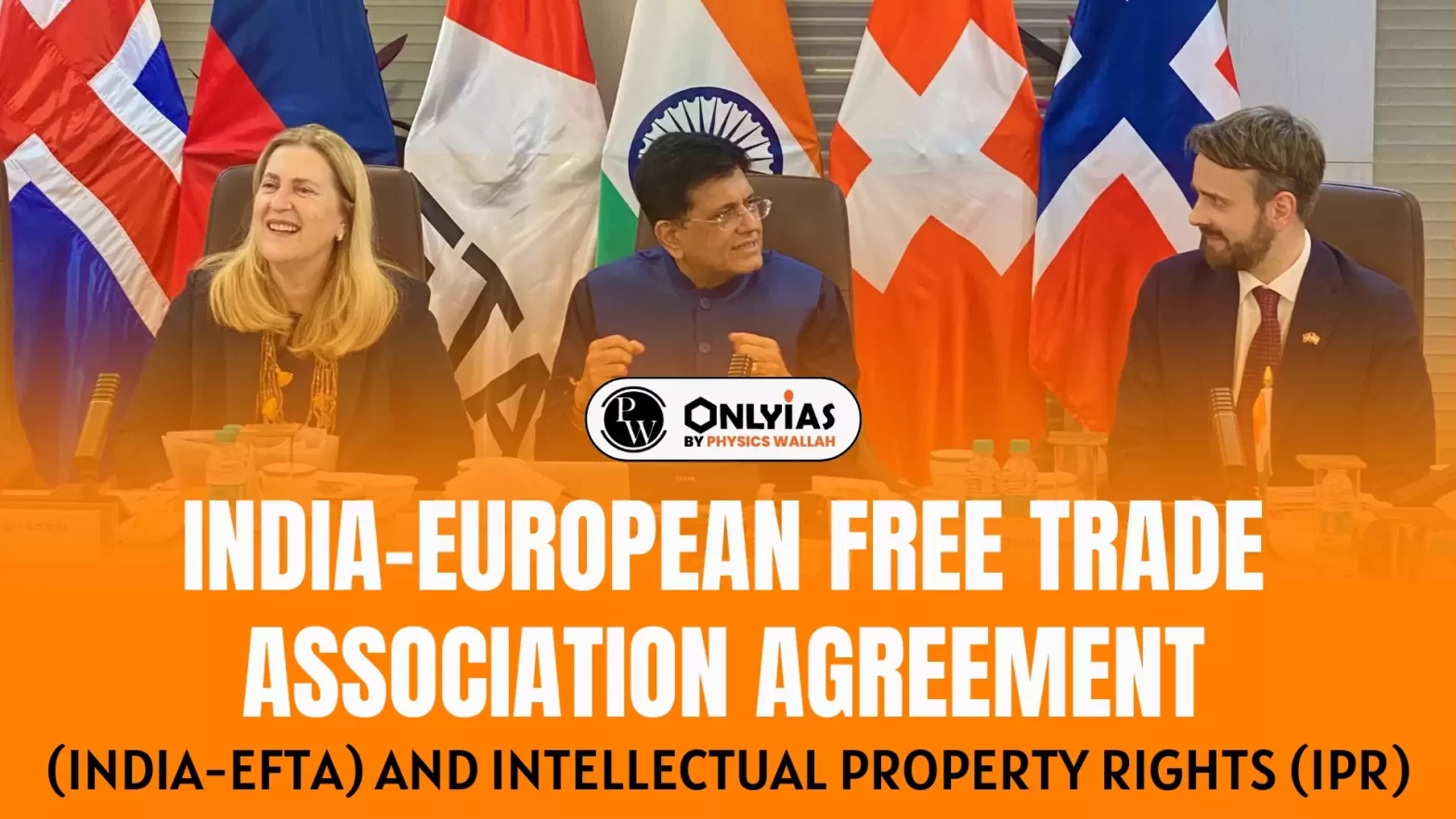![]() 17 Feb 2024
17 Feb 2024

This editorial is based on the news “Brave new world: On the India-European Free Trade Association agreement and IPR” which was published in the Hindu. There are high expectations that a free trade agreement (FTA) involving India and the European Free Trade Association (EFTA) is close to fruition.
| Relevancy for Prelims: India-European Free Trade Association (EFTA), World Intellectual Property Organisation (WIPO), India’s Evolving Global Trade Relations, and World Trade Organization (WTO).
Relevancy for Mains: The Trade Policy of India with EFTA, Issues of the pharmaceutical sector in India. |
|---|
Schengen area: It is an area comprising countries in Europe that have mutually abolished all passport requirements and other border control mechanisms among themselves.
|
|---|
Pharmaceutical Industry Dynamics
|
|---|
| Prelims PYQ (2016):
In the context of which of the following do you sometimes find the terms ‘amber box, blue box and green box’ in the news? (a) WTO affairs (b) SAARC affairs (c) UNFCCC affairs (d) India-EU negotiations on FT Ans: (a) |
|---|
| Must Read | |
| NCERT Notes For UPSC | UPSC Daily Current Affairs |
| UPSC Blogs | UPSC Daily Editorials |
| Daily Current Affairs Quiz | Daily Main Answer Writing |
| UPSC Mains Previous Year Papers | UPSC Test Series 2024 |

<div class="new-fform">
</div>